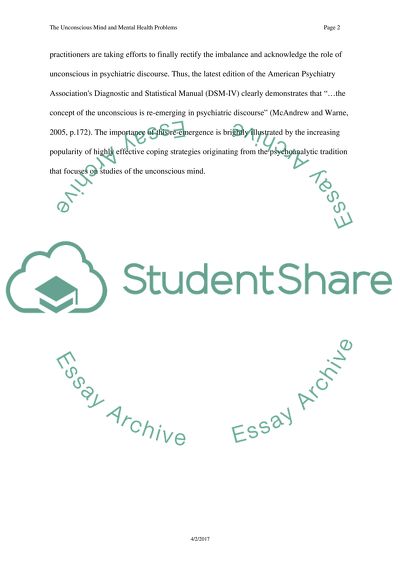Cite this document
(The Unconscious Mind and Mental Health Problems Essay Example | Topics and Well Written Essays - 1500 words, n.d.)
The Unconscious Mind and Mental Health Problems Essay Example | Topics and Well Written Essays - 1500 words. https://studentshare.org/psychology/1527132-psychology-how-important-are-the-contents-of-the-unconscious-mind-to-the-understanding-and-treatment-of-mental-health-problems
The Unconscious Mind and Mental Health Problems Essay Example | Topics and Well Written Essays - 1500 words. https://studentshare.org/psychology/1527132-psychology-how-important-are-the-contents-of-the-unconscious-mind-to-the-understanding-and-treatment-of-mental-health-problems
(The Unconscious Mind and Mental Health Problems Essay Example | Topics and Well Written Essays - 1500 Words)
The Unconscious Mind and Mental Health Problems Essay Example | Topics and Well Written Essays - 1500 Words. https://studentshare.org/psychology/1527132-psychology-how-important-are-the-contents-of-the-unconscious-mind-to-the-understanding-and-treatment-of-mental-health-problems.
The Unconscious Mind and Mental Health Problems Essay Example | Topics and Well Written Essays - 1500 Words. https://studentshare.org/psychology/1527132-psychology-how-important-are-the-contents-of-the-unconscious-mind-to-the-understanding-and-treatment-of-mental-health-problems.
“The Unconscious Mind and Mental Health Problems Essay Example | Topics and Well Written Essays - 1500 Words”. https://studentshare.org/psychology/1527132-psychology-how-important-are-the-contents-of-the-unconscious-mind-to-the-understanding-and-treatment-of-mental-health-problems.


